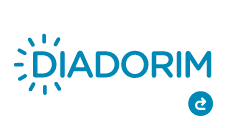COESÃO NO CONTEXTO DA CRIAÇÃO CÊNICA
DESAFIOS E CAMINHOS PARA O CONJUNTO CRIADOR
DOI:
https://doi.org/10.35699/2238-2046..15613Palavras-chave:
Coesão grupal, Artes Cênicas, Processos de CriaçãoResumo
Este artigo discute a coesão no intuito de refletir aspectos do funcionamento de coletivos artísticos, grupos teatrais e turmas de graduação em Artes Cênicas. Considera a noção de coesão como tendência para a unidade de um grupo na busca de objetivos comuns. O trabalho discorre sobre a influência da coesão social e coesão de tarefa no processo de criação, questionando fatores que podem contribuir para reforçar a atração de grupo. Se a coesão de tarefa influencia de maneira enfática o processo em si, a coesão social colabora no suporte emocional dos artistas envolvidos, contribui para melhorar a qualidade do ambiente e alimenta sentimentos positivos sobre o grupo.
Downloads
Referências
BROTTO, Fábio Utozi. Jogos cooperativos: o jogo e o esporte como um exercício de convivência. 1999. Dissertação (Mestrado) – Universidade Estadual de Campinas, Faculdade de Educação Física, Campinas, 1999.
CAMPOS, F.C.A.; SANTORO, F.M.; BORGES, M.R.S., SANTOS, N. Cooperação e aprendizagem on-line. Rio de Janeiro: Editorial DP&A, 2003
CARRON A. V.; BRAY, S. R.; EYS, M. A. Team cohesion and team success in sport. Journal of Sports Science, v.20, p.119-126, 2002.
CARRON A. V.; HAUSENBLAS, H. A.; EYS, M. A. Group Dynamics in Sport. Morgantown, WV: Fitness Information Technology, 2005.
CARRON, A.; WIDMEYER, W.; BRAWLEY, L. The Development of instrument to assess cohesion in sport teams: The Group Environment. Questionaire. Journal of Sport Psychology, v. 7, p. 244-267, 1985.
CARTWRIGHT, D.; ZANDER, A. Dinâmica de grupo. Pesquisa e teoria. São Paulo: EPU, v. 1, 1975.
CASTELLANI, Rafael Moreno. A liderança e coesão grupal no futebol profissional: o pesquisador fora do jogo. Revista Brasileira de Educação Física Esporte, São Paulo, v.26, jul./set. 2012, p. p.431-345.
CHEKHOV, Michael. Para o ator. São Paulo: WMF Martins Fontes, 2010.
CRATTY, B. J. Psicologia do esporte. Rio de Janeiro: Prentice-Hall do Brasil, 1984.
CUNHA, Odir. Festival Laranja Mecânica. Veja como surgiu o Carrossel Holandês com seu “futebol total”. Blog do Odir, 08 jul. 2010. Disponível em: <http://blogdoodir.com.br/2010/07/festival-laranja-mecanica-veja-como-surgiu-o-carrosselholandes-com-seu-%E2%80%9Cfutebol-total%E2%80%9D/>. Acesso em: 11 set. 2016.
GOMES, M. M.; HERDANDEZ, J. A. Coesão grupal, ansiedade pré-competitiva e o resultado dos jogos em equipes de futsal. Revista Brasileira de Ciências do Esporte, Campinas, v. 24, set. 2002, p. 139-150.
LEAL, Júlio C. Futebol: arte e ofício. Rio de Janeiro: Sprint, 2000.
RIOUX, G.; CHAPPUIS, R. Cohesión del equipo. Paris: Minón, 1979.
SHRAUGER, J. S., e SCHOENEMAN, T. J. Symbolic Interaccionist view of seif- -concept: through tlie looking glass darkly, Pschological Bulletin, 86 (3), 1979, p. 549-573.
TAMAYO, A. Relação entre o autoconceito e a avaliação percebida de um parceiro significativo, Arquivos Brasileiros de Psicologia, 37(1), 1985, p. 88-96.
TUTKO, T. A.; RICHARDS J. W. Psicología del entrenamiento desportivo. Boston: Allyn and Bacon, 1984.
WEINBERG, R. S.; GOULD, D. Fundamentos de psicología del deporte y el ejercicio físico. Barcelona: Ariel Psicologia, 1996.
SPOLIN, Viola. Jogos teatrais na sala de aula: um manual para o professor. São Paulo: Perspectiva, 2007.
Downloads
Publicado
Edição
Seção
Licença
Copyright (c) 2018 LARA BARBOSA COUTO

Este trabalho está licenciado sob uma licença Creative Commons Attribution-NonCommercial 4.0 International License.
Autores que publicam nesta revista concordam com os seguintes termos:
- Autores mantém os direitos autorais e concedem à revista o direito de primeira publicação, com o trabalho simultaneamente licenciado sob a Creative Commons Attribution-NonCommercial 4.0 International License que permite o compartilhamento do trabalho com reconhecimento da autoria e publicação inicial nesta revista.
- Autores têm autorização para assumir contratos adicionais separadamente, para distribuição não-exclusiva da versão do trabalho publicada nesta revista (ex.: publicar em repositório institucional ou como capítulo de livro), com reconhecimento de autoria e publicação inicial nesta revista.
- Autores têm permissão e são estimulados a publicar e distribuir seu trabalho online (ex.: em repositórios institucionais ou na sua página pessoal) a qualquer ponto antes ou durante o processo editorial, já que isso pode gerar alterações produtivas, bem como aumentar o impacto e a citação do trabalho publicado
- É responsabilidade dos autores a obtenção da permissão por escrito para usar em seus artigos materiais protegidos por lei de Direitos Autorais. A Revista PÓS não é responsável por quebras de direitos autorais feitas por seus colaboradores.












